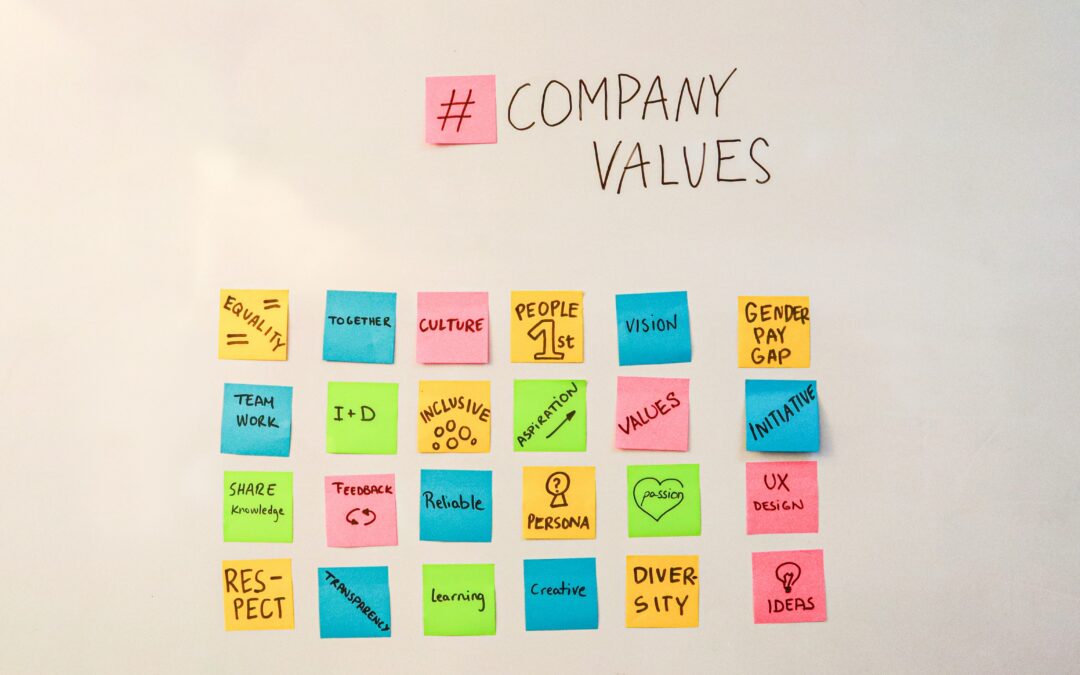
by Cortina Jenelle | Mar 21, 2024 | blog, business, facilitation
Sharing one of my facilitation hacks that has helped me build a dynamic portfolio of proven impact with community-led projects –
Before I facilitate with a new group, I always hold an orientation or onboarding session where I’m getting to know the participants before the facilitation work begins.
If I can’t get together with the group in-person or there are scheduling conflicts, I will host us on a Zoom call or send out a survey with some key questions that everyone fill out –
💥 their goal of the work;
💥 challenges or concerns they have about the facilitation;
💥 brief personality test;
💥 communication style;
💥 learning style;
💥 a few random samples in a “This or That” format (i.e. video clip and reflection or brief article and written questions).
Usually, this is a fun time! I’m playing a special playlist I’ve made for the group (and people ALWAYYSSS ask for the link after 😎 ) and I’ve dressed up in festive attire, even if it’s over Zoom.
And low key, I’m setting a celebratory tone for our heavy lifting, I’m building trust with the group as the facilitator and the group is building rapport with each other in ways they may not get to do in their day-to-day on the job. By the end of it, I’ve gathered a TON of data about the group – through written answers to the survey, observations of subtle group dynamics and noting any verbal side-bar dialogue that we’re having.
All of this shapes the facilitation process and none of it has failed me yet!
Photo by Walls.io for Unsplash
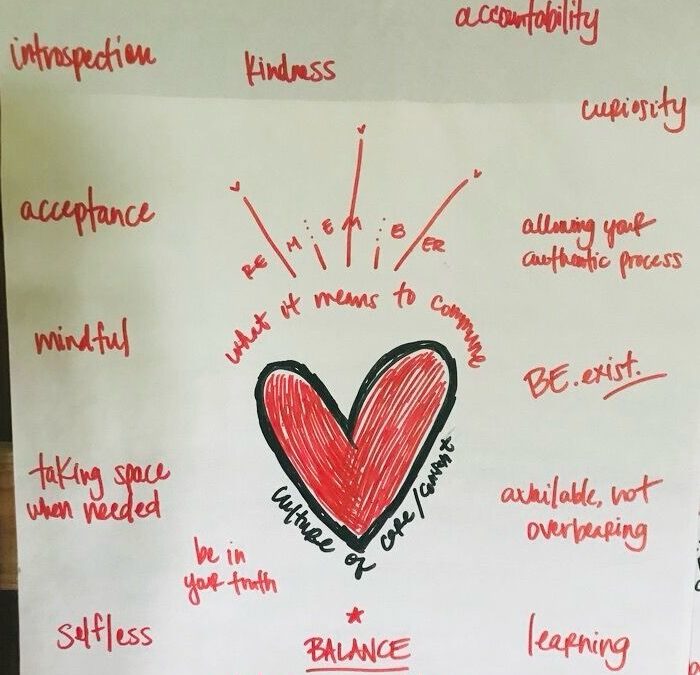
by Cortina Jenelle | Sep 12, 2023 | blog, creative coach, deib, entrepreneur coach, facilitation, sacred heart
Culture of care is often something I talk about in my work with young professionals, students, community partners and clients. It seems like more and more, these concepts need to be brought to the forefront in team spaces because it’s not standard for us these days. But, is there a such thing as too much compassion or empathy? In my DEIB work especially, people are concerned with where to draw the line about triggers and how to respond to conflict. It’s not always easy to track the ROI of human relations where we work and learn. But the lack of care in any space certainly be felt.
I have a proposition for you.
What if you proactively, or as soon as you can, establish some parameters and agreements for creating and sustaining a culture of care at your job, project or school? Meaning, the work and the mission is important but not at the expense of leaving people behind or sacrificing their well-being to get there.
Not having a true culture of care costs us good people, takes more time (spent on putting out little fires, addressing conflict or violations) and less time is spent on the actual work anyways so why not create a clear container so that people feel seen, heard, valued and respected. This leads to a clear path to express our boundaries, needs and discomforts *without* making someone also the scapegoat to fix it.
Is this something you could imagine using, or have used in your work or learning spaces?
Food for thought!
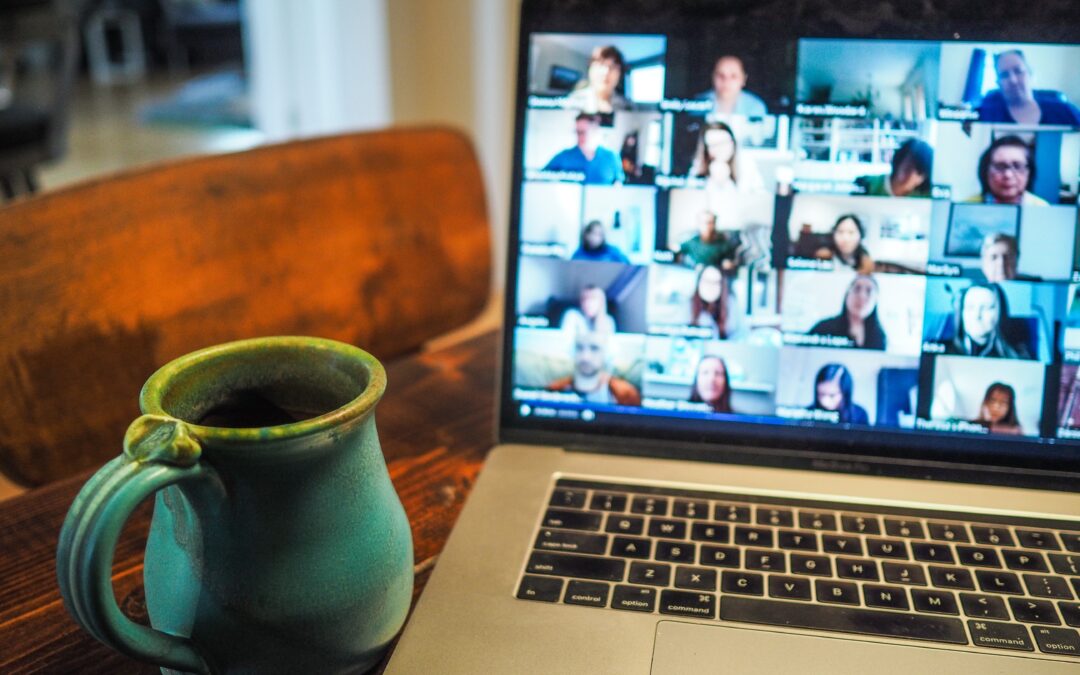
by Cortina Jenelle | Aug 8, 2023 | blog, business, creative coach, entrepreneur coach, entrepreneurs, facilitation
The digital age has redefined how we work, learn, and connect. In response to recent global challenges, the embrace of remote work, virtual meetings, and online learning has only grown stronger, shaping new paradigms for the modern professional – with no slowing down in sight. As a freelancer over everything and an introverted processor, I have been working remotely for nearly 10 years. Tools like Asana, Slack, Google Suite, Honeybook and LinkedIN were my go to’s early on in 2013 and I cannot begin to tell you how excited I am to witness the roster of tools growing With these changes come distinct trends that are molding our digital experiences.
Hybrid work models are becoming the new norm, with companies permitting employees to enjoy a blend of office and remote work. Online learning platforms are integrating game mechanics to keep engagement high and enhance retention, a phenomenon known as gamified learning. Meanwhile, virtual and augmented reality are no longer just buzzwords or some “out there” concept, they are beginning to create immersive meeting and learning experiences that captivate and inspire.
Accessible Options for Remote Work + Virtual Meetings:
- Airtable: A blend of spreadsheet and database, it offers dynamic ways to organize content, track tasks, and manage projects.
- Google Meet: Integrated with other Google services for reliable video conferencing.
- Microsoft Teams: Your one-stop hub for collaboration, including chat, video meetings, and file storage.
- Slack: Messaging made simple and efficient for teams with channels and integrations.
- Trello: Visualize your tasks and projects with its unique board and card system.
- Moodle: An open-source Learning Management System tailored for the educators of today.
- Kahoot!: Learning meets fun with this game-based platform, perfect for quizzes and interactive sessions.
- Miro: Brainstorm and collaborate with this digital whiteboard tool.
- Notion: An all-encompassing workspace platform that goes beyond just notes and tasks.
- Discord: From gamers to study groups, a platform to build and nurture communities.
The modern era, marked by its rapid digital evolution, emphasizes the significance of staying connected, informed and adaptable. That in mind, it’s important to make sure that any platform you use, especially if a requirement for your team or workplace, is inclusive and accessible for everyone. All the platforms I name above are FREE to use and offer a lot of functionality even with no payment requirement. The more you upgrade, the more robust your features are so that’s fun too!
Harnessing the power of digital tools not only ensures smooth communication but also fosters growth, innovation, and unity in both professional and personal spheres. Whether you’re a digital novice or a seasoned tech enthusiast, these platforms and trends are pivotal in crafting a connected and efficient future. If nothing else, I’m absolutely excited about the time freedom I earn when I can train these digital tools to keep me organized + connected.
Happy relating!
Photo by Chris Montgomery on Unsplash

by Cortina Jenelle | Jul 21, 2023 | blog, facilitation
At its heart, creative facilitation is not just about guiding a group through a process; it’s about unlocking the latent potential, creativity, and insight within each individual. Through a mix of art, imagination, and structured dialogue, creative facilitation goes beyond traditional methods to yield profound outcomes.
Principles of Creative Facilitation:
- Inclusivity and Equal Voice: Every participant, regardless of their background or status, should feel heard, valued, and empowered to share their perspective.
- Safe Environment: A creative facilitator cultivates a space where individuals feel safe to express themselves, take risks, and share openly without fear of judgment.
- Flexibility: The process must adapt to the needs of the group, allowing for organic growth and changes as the session unfolds.
- Active Listening: This emphasizes truly hearing and understanding participants’ viewpoints, ensuring they feel recognized and validated.
- Stimulating Creativity: Using tools like art, music, drama, or storytelling, facilitators encourage participants to think outside the box and explore new avenues of thought.
- Reflective Practice: Facilitators encourage participants to reflect on their experiences, insights, and learnings, promoting deeper understanding and growth.
The Power of Creative Facilitation: Research Insights:
- Youth Groups: According to a study published in the Journal of Youth Development, creative facilitation techniques, especially when involving artistic expression, helped youths articulate their emotions, aspirations, and challenges more vividly. This not only bolstered their self-esteem but also fostered a stronger sense of community.
- Nonprofit Organizations: A report by the Center for Creative Leadership emphasized that creative facilitation in nonprofits led to more innovative solutions, especially in strategy and program development. Participants were more engaged, collaborative, and came up with out-of-the-box ideas.
- Communities Undergoing Change: In communities facing transitions or challenges, creative facilitation acts as a bridge. A study in the Community Development Journal showcased how such facilitation methods, especially when integrating local arts and culture, were pivotal in rallying communities together, shaping shared visions, and devising actionable, community-centric strategies.
Creative facilitation is not merely a technique; it’s a transformative approach that amplifies voices, fosters understanding, and paves the way for collective, innovative action. For youth groups, nonprofits, and communities, it’s a beacon that lights the path to positive change, unity, and holistic growth.
Photo by Jeffrey Hamilton on Unsplash
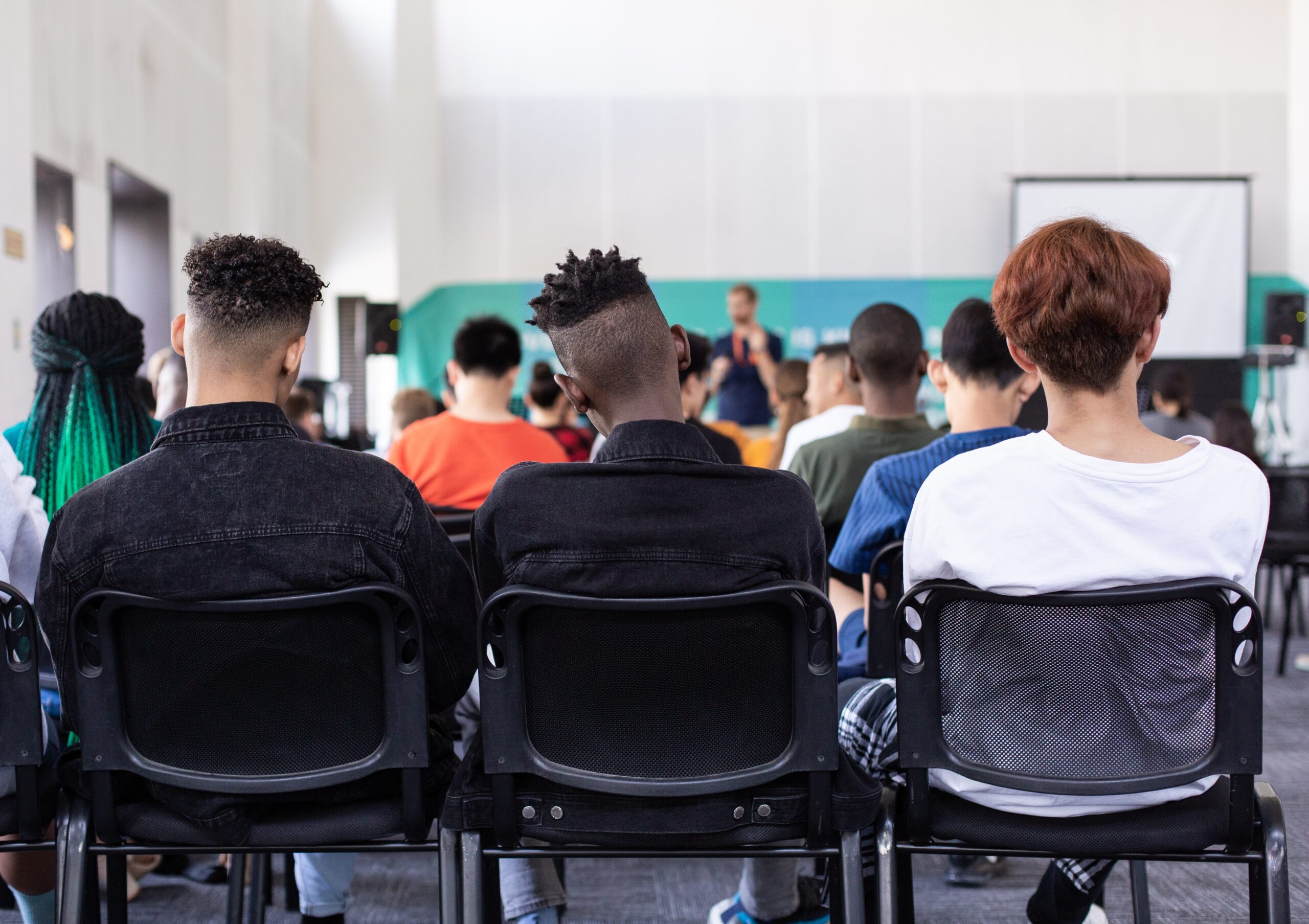
by Cortina Jenelle | May 24, 2023 | blog, entrepreneurs, facilitation, imagination, liberation
School’s almost out! So, there is no time the present to talk about equity and education.
In the intricate journey of human advancement, the corridors of traditional educational establishments have often echoed uniformity. Yet, there’s a burgeoning movement to champion a more emergent and equitable approach to learning. We can all agree that the year 2020 became a hallmark of rapid transformation. Suddenly, parents were teachers, hall monitors, janitors, lunch ladies, bus drivers and tutors and many school systems scrambled to meet the burgeoning needs of their students. Forced to adapt almost overnight, educational structures began to realize the significance of flexibility and inclusivity. These tumultuous times catalyzed an essential re-evaluation, championing a more emergent and equitable approach to learning. Thus began the new dawn of educational philosophy and a reconstruction period for education as we know it.
Historically, the education system has mirrored societal hierarchies, often entrenching inequalities. But with the civil rights movements and progressive ideologies gaining ground in the 20th century, a push for a more inclusive and adaptive education became evident. Today, this ethos is embraced worldwide, with institutions recognizing the value of diverse thought and fostering environments where every voice matters. At its core, equitable education is about ensuring that every learner’s unique experiences and needs are acknowledged and catered to. Instead of a one-size-fits-all methodology, it celebrates diversity and individual potential. Simplified, it’s the idea that education should be a tailored journey, not a mass-produced product. Students should feel seen, heard, and understood, with the curriculum adapting to them, rather than the other way around.
In this reimagined educational landscape where equity leads, the role of the teacher would have to evolve dramatically. In fact, because of the demands of virtual learning, the role of the teacher already has. Instead of merely imparting information, educators become facilitators and co-learners. They set the stage for exploration and guide the process, but they’re also open to learning from the students. This approach prioritizes mutual respect and encourages learners to take an active role, fostering a community of inquiry and shared discovery. The emergent approach draws inspiration from various philosophies.
The Montessori method, for instance, places children at the center of their own learning journeys, emphasizing hands-on discovery and individualized pacing. The Sudbury model, on the other hand, is based on democratic principles, allowing students significant autonomy in deciding what and how they want to learn. It often involves students participating in administrative decisions, emphasizing respect, freedom, and responsibility. By amalgamating these philosophies, equitable education seeks to create environments where every student is empowered and engaged. And a forest/nature school model facilitates learning in an outdoor setting to teach principles of reciprocity and sustainability.
As we stride into a future characterized by rapid change, it’s imperative to have an education system that champions adaptability, inclusivity, and innovation. Equitable education isn’t just about fairness; it’s about preparing a generation to navigate complexities with empathy and wisdom. So what does this all mean? Only what you want it to. The reimagined philosophy of education doesn’t seem to be a trend, it’s evidence of a necessity that we have been trying to evolve for nearly a century. As we reshape our learning environments, we could also sculpt a brighter, more inclusive future for all.
Photo by Sam Balye on Unsplash
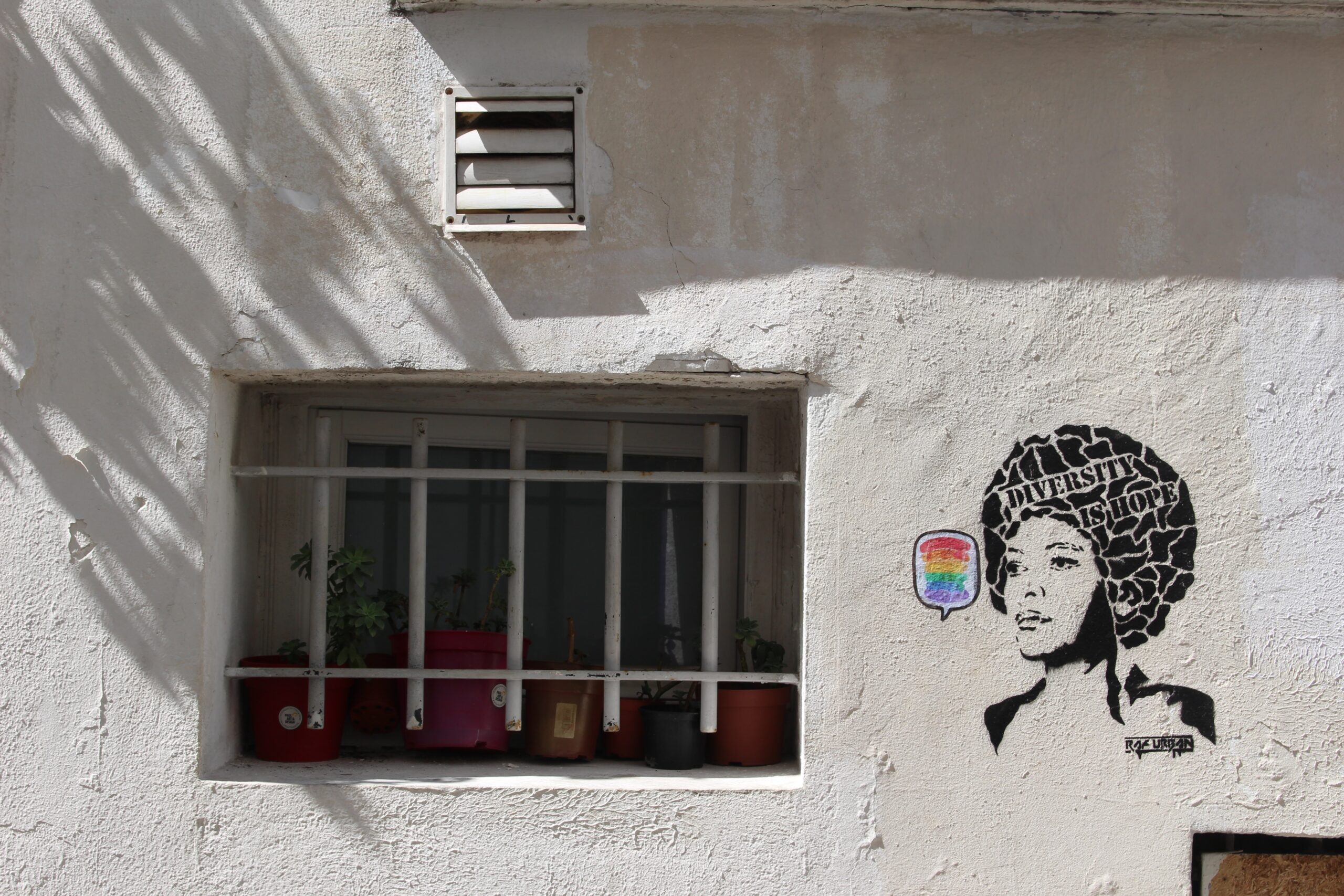
by Cortina Jenelle | Apr 20, 2023 | blog, business, deib, facilitation, imagination
Over the years, I have had conversations with many business and nonprofit leaders as they are in the trenches and seeking to engage the Black, indigenous, persons of color (BIPOC) population as their grants compel them to do. Gaps in engagement and participation in programming by the BIPOC community point to a lack of trust, or more importantly, a lack of relationship with the BIPOC community that the grants are written on behalf of. Engaging authentically is paramount if nonprofit leaders want to engage in a space of empathy and mutual aid as opposed to sympathy and charity.
NURTURE A CONNECTION THROUGH APPRECIATION
For nonprofit leaders aiming to foster a deeper connection with the Black community, a thoughtful and multifaceted approach is necessary. Firstly, it is pivotal to comprehend the historical and cultural context surrounding the Black community. This entails educating oneself about the historical experiences and significant contributions of the Black community both regionally and globally. It is equally important to recognize the nuances and the rich diversity within the Black community, understanding that it is not a monolithic group. Cultivating a deep appreciation for the vibrant cultural heritage while avoiding stereotyping and assumptions is an essential part of this process.
SPARK CONVERSATIONS
Next, embarking on the path of meaningful dialogue is key. This can be facilitated through community meetings where individuals can express their viewpoints and concerns, thereby fostering open conversations. Additionally, establishing channels for community members to offer feedback and suggestions on initiatives will further enhance collaboration. Collaborative efforts, including forming partnerships with existing organizations within the Black community and involving community representatives in planning and decision-making processes, can help in aligning the initiatives more closely with the community’s needs and aspirations.
CELEBRATE CULTURES
Showcase and celebrate the rich diversity within the Black community. Organize cultural events and promote the arts and heritage through various platforms to celebrate diversity. Collaborative celebrations, such as working with community groups to organize events and showcasing stories of individuals making positive impacts, can serve to amplify the sense of community and celebration.
IMPLEMENT + ITERATE
As nonprofit leaders navigate this journey, continuous learning and adaptation should be at the forefront. Reflect regularly on the outcomes of your initiatives, learning and adapting from experiences. Establish a feedback loop with the community to continually refine and enhance your approaches. Be prepared to adapt strategies based on insights gained from engagements and stay responsive to the evolving dynamics and needs within the community.
Photo by Lucie Hošová on Unsplash






